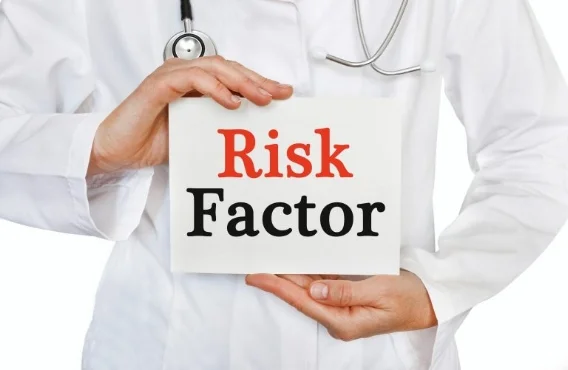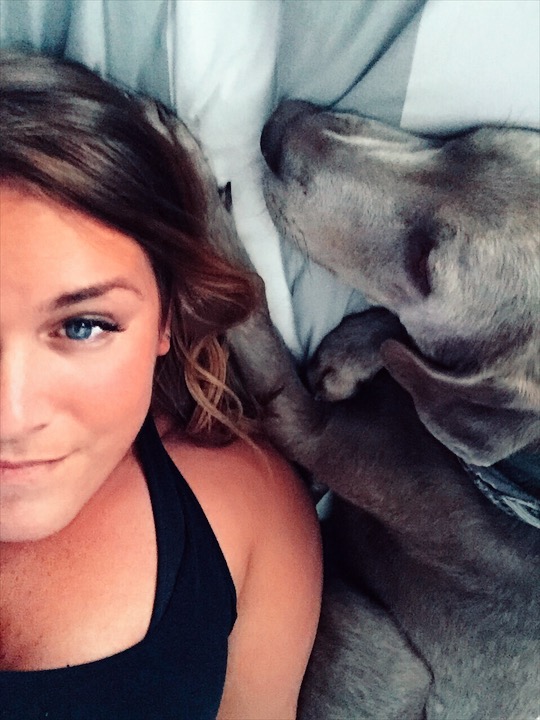what you think won't happen to you, happened to me.
I would like to start this post by saying, I am not a physician, I am simply sharing information to help bring awareness to blood clots and what you may be experiencing. If you have questions please seek medical attention immediately.
March is National Blood Clot Awareness Month... I know I know every month there is some sort of awareness month and what good does awareness do, most people know about cancer, but with blood clots, it's a little different. I almost died from a blood clot. As a high school volleyball coach, I often hear my athletes talking about how they picked up birth control at the high school health center. This makes my stomach qweezy, I'm all for birth control, women should totally have a choice with their bodies, but I question whether these teenagers know and are hearing about the side effects of BC. I share my story with the girls on my team so they are aware and know what to look for and that they know, this happened to someone you know, it could happen to you! Throughout the years, there are lots of things I've learned about blood clots that people don't know, and that I didn't know until I had one. By reading this post you could save your life or someone you know by being able to identify the signs and symptoms of a blood clot.
Birth control- If you're taking birth control, you could be at risk for a deadly blood clot. The use of birth control pills with estrogen increases a woman's risk for blood clots three-fold, and some o the newer birth control pills women use are now recognized to pose a risk two-times greater than older birth control pills. The use of patches and rings containing estrogen pose a risk double that of birth control pills. If you use, or are thinking about using hormonal birth control please take a moment to visit the National Blood Clot Alliance to learn more about how your birth control and the risk of blood clots.
common risk factors of blood clots:
- Hospitalization for illness or surgery
- Major surgery, particularly of the pelvis, abdomen, hip, knee
- Severe trauma, such as a car accident
- Injury to a vein that may have been caused by a broken bone or severe muscle injury
- Hip or knee replacement surgery
- Cancer and cancer treatments
- Use of birth control methods that contain estrogen, such as the pill, patch or ring
- Pregnancy, which includes the six weeks after the baby is born
- The use of hormone therapy, which contains estrogen
- A family history of blood clots
- Obesity
- Confinement to bed
- Sitting too long, especially with legs crossed
signs & symptoms of a blood clot
Symptoms of blood clots in the deep veins of the legs or arms, where they commonly form, include pain and swelling, with skin that might be discolored and/or warm to the touch.
The symptoms of blood clots in the lungs include chest pain, particularly with a deep breath, coughing up blood, and an accelerated heart rate.
signs & symptoms of a deep vein thrombosis (DVT)
Deep vein thrombosis (DVT) occurs when a blood clot forms in one of the deep veins of your body, usually in your legs, but sometimes in your arm. The signs and symptoms of a DVT include:
- Swelling, usually in one leg (or arm)
- Leg pain or tenderness often described as a cramp or Charley horse
- Reddish or bluish skin discoloration
- Leg (or arm) warm to touch
These symptoms of a blood clot may feel similar to a pulled muscle or a “Charlie horse,” but may differ in that the leg (or arm) may be swollen, slightly discolored, and warm.
signs & symptoms of a pulmonary embolism (PE)
Clots can break off from a DVT and travel to the lung, causing a pulmonary embolism (PE), which can be fatal. The signs and symptoms of a PE include:
- Sudden shortness of breath
- Chest pain-sharp, stabbing; may get worse with deep breath
- Rapid heart rate
- Unexplained cough, sometimes with bloody mucus
Knowing the signs and symptoms of a blood clot, DVT and PE could save your life. I had the signs for a week and half before I went to an ER. Not everyone is as lucky as I am. I've heard from parents of young adults who within hours of realizing the symptoms passed away. It never hurts to get something checked out. You know you're body best. Trust your gut and seek medical attention.
Information for this post comes directly from the National Blood Clot Alliance






